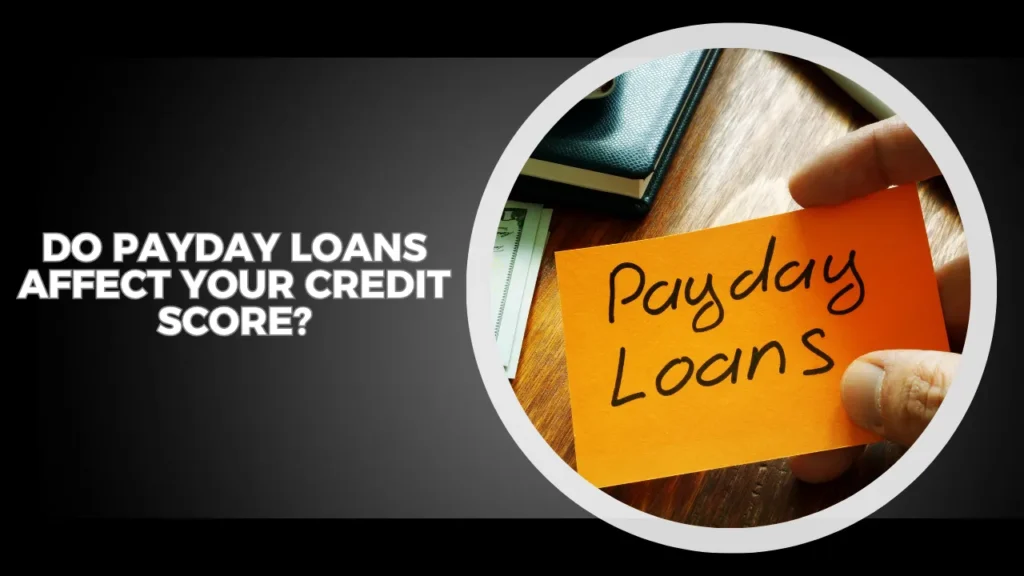When financial emergencies strike — a car repair, a medical bill, or an overdue rent payment — payday loans can feel like a lifeline. They’re fast, convenient, and often available to people who don’t qualify for traditional credit. But one question continues to surface among borrowers: do payday loans affect your credit score?
The answer isn’t entirely straightforward. Payday loans can impact your credit, but how and when that happens depends on how you manage them. As someone who’s spent years writing about personal finance and credit behavior, I’ve seen both the helpful and harmful sides of payday lending. Let’s unpack what really happens behind the scenes and how you can make informed choices without damaging your financial future.
Understanding How Payday Loans Work
Payday loans are short-term, high-interest loans designed to bridge the gap between paychecks. Borrowers typically take out a few hundred pounds (or dollars), promising to repay the full amount plus fees when they next get paid. These loans are easy to access, especially online, but that convenience often comes with high costs.
In most cases, payday lenders perform only a soft credit check before approval. This means applying for a payday loan won’t usually lower your score immediately. However, that doesn’t mean your credit is immune from potential effects later. The real impact depends on how you repay — or fail to repay — the loan.
Many reputable lenders across payday loans uk markets now operate under strict regulations to ensure borrowers understand their obligations. These lenders must disclose interest rates clearly and report repayment behavior accurately. So, while the initial approval might not hurt your credit, the way you handle repayment absolutely can.
The Connection Between Payday Loans and Credit Reports
Your credit score is a reflection of how reliably you repay borrowed money. It’s built from data in your credit report, including your history of loans, credit cards, and other financial commitments. Payday lenders may or may not report your loan to credit reference agencies — but when they do, your repayment behavior becomes part of your record.
If you pay on time, this can actually help your credit slightly, showing lenders you’re responsible even with short-term debt. But if you miss payments, default, or roll over the loan repeatedly, it can seriously damage your score. Late payments or defaults stay on your credit report for up to six years, which can make it harder to get mortgages, car finance, or even phone contracts in the future.
Another subtle way payday loans can hurt your credit is through your debt-to-income ratio. Even if your lender doesn’t report directly to credit bureaus, other lenders reviewing your financial history might view frequent payday borrowing as a sign of financial instability.
When Payday Loans Help — and When They Hurt
There are scenarios where payday loans can serve a purpose. If you borrow a small amount, repay it on time, and don’t rely on it regularly, the loan can demonstrate financial responsibility. For some people, particularly those rebuilding credit, this can be a temporary bridge that keeps bills from going unpaid.
However, problems arise when payday loans become a cycle rather than a one-time solution. Many borrowers find themselves rolling over loans or taking new ones to pay off old debt. Because the interest rates are high, this cycle can quickly spiral into long-term financial stress.
Credit bureaus and lenders see this pattern as a red flag — an indication that you’re depending on high-cost credit rather than managing your finances sustainably. Even if your score doesn’t immediately drop, future loan applications may be rejected because payday borrowing signals higher risk.
How Lenders View Payday Loan Usage
Traditional lenders, such as banks or mortgage providers, often look beyond your numerical credit score. They assess the context behind your borrowing. Payday loans can raise questions about financial stability, even if you’ve paid them back responsibly.
Imagine two applicants with identical credit scores. One has a steady track record of low-interest personal loans, while the other has multiple payday loans over the past year. A lender is more likely to trust the first borrower, interpreting the second as potentially living beyond their means or facing financial strain.
This perception can affect everything from loan approvals to interest rates. It’s not that payday loans automatically disqualify you — but frequent use can influence how future lenders judge your reliability.
Responsible Payday Loan Use and Credit Health
If you must take out a payday loan, managing it wisely is key. Borrow only what you can afford to repay comfortably from your next paycheck. Set reminders for your repayment date, and if you encounter difficulties, contact the lender early. Some payday lenders offer repayment plans or hardship extensions that can prevent defaults and protect your credit record.
It’s also worth monitoring your credit report regularly. Free services like Experian, Equifax, and TransUnion let you check whether payday lenders have reported your account and how it appears. If you find incorrect data, you can dispute it — and it’s your right to do so.
Beyond that, focus on rebuilding your credit health through stable, lower-cost financial habits. Paying household bills on time, reducing credit card balances, and using small, affordable credit-builder loans can all help offset any negative effects payday borrowing might cause.
What to Do If a Payday Loan Has Already Damaged Your Credit
If your credit score has taken a hit from payday loan issues, don’t panic — recovery is possible. Start by clearing any outstanding debt and ensuring all payments are up to date. Then, avoid further high-interest borrowing.
Over time, the impact of missed payments fades. Focus on positive credit behaviors: keep old accounts open to maintain credit history length, use no more than 30% of your credit limits, and make small, consistent payments on time. Within a year or two, you’ll begin to see improvements.
If your debt feels unmanageable, seek free financial advice from organizations like StepChange or the Money Helper service in the UK. They can negotiate with lenders and help you design a realistic repayment plan.
The Bigger Picture: Payday Loans and Long-Term Financial Strategy
While payday loans can solve immediate cash flow issues, they’re not meant for repeated use. Think of them as an emergency tool — not a regular budget fix. Over-reliance on short-term, high-interest credit often signals deeper money management problems that should be addressed with budgeting or debt advice.
Lenders, regulators, and even technology platforms are pushing for greater transparency in this sector. In the UK, the Financial Conduct Authority (FCA) has capped payday loan costs to protect consumers. But even with these protections, borrowers must stay vigilant. Understanding the real cost and long-term impact on credit is the best way to avoid surprises.
Conclusion
So, do payday loans affect your credit score? Yes — but not always directly or immediately. Their impact depends on how responsibly you manage them. Paying on time may have little to no negative effect, while missing payments can cause lasting credit damage.
Ultimately, payday loans should be used sparingly, only when absolutely necessary, and with a clear repayment plan. They can provide relief in tough moments, but they shouldn’t replace sustainable financial planning. If you manage them wisely, your credit score can recover — and even improve — over time.











